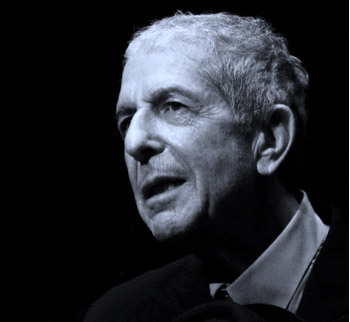In the outpouring of eulogies for the extraordinary poet and singer Leonard Cohen, the Jewishness of his oeuvre, of his artistically spiritual journey, takes centre stage. From his earliest to his last compositions, from his Jewish childhood to his Jewish burial, the words and music of this Montreal troubadour cannot help but strike us as both deeply universal and profoundly Jewish.
But like the label “woman writer,” the designation “Jewish writer” has been repudiated by many authors who have been classified that way. They see such an identifier as diminishing their work by pigeon-holing it. The classification “woman writer” or “Jewish writer” – as distinct from, simply, writer – suggests, they feel, a narrowness in vision, scope and readership. Philip Roth has famously insisted that he’s not a Jewish writer, but a writer who happens to be Jewish, and others in the pantheon of North American Jewish writing have echoed similar sentiments.
Listening to Cohen sing and reading his poems makes clear that the Jewish wellsprings of his writerly sensibilities did not limit his vision or his appeal, but broadened them. The immense popularity of Cohen’s songs illustrates that in writing out of one’s lived experience, out of the Jewish condition, writers also engage in broad humanistic issues that define the human condition.
READ: EIGHT REASONS LEONARD COHEN WILL LIVE FOREVER
What is Jewish writing, and what does it mean to be a Jewish writer? The magnificent Jewish American novelist Cynthia Ozick once explained, in a 1997 interview in the Atlantic, why she – in contrast to many of her cohorts – embraces the sobriquet “Jewish writer,” while rejecting the designation “woman writer.” “Jewish,” she explained, entails “civilization, culture, and intellect,” while “woman” is simply “a category of anatomy and physiology… the capacity to bear children.” While one might take issue with her reduction of womanhood to mere biology and not culture, she is correct to think about Jewish writing as connoting something beyond the lineage of the writer.
A “Jewish writer” means more than a writer who happens to be Jewish. It means a writer who engages Jewish texts, Jewish traditions, Jewish history and Jewish ethics, a writer who invokes the recurrent images that permeate Jewish narratives – as Cohen did, with his midrashim on Isaac, David and other biblical figures; in his invocation of Jewish liturgy; and in his challenges to the Jewish God.
That’s not to say that a Jewish writer is a pious one. To the contrary. As Ozick puts it, the term “ought to be an oxymoron.” She notes the contradictory impulses of religion, on the one hand – adherence, obedience, and proprietary – and literature, on the other – imaginative freedom, propriety and playfulness.
You might say that Cohen’s writing inhabits Ozick’s oxymoron, and that he embraced it. Take his longstanding engagement with Buddhist practices. In an insightful and impassioned reflection on the poet, Rabbi Jonathan Sacks insisted on the Jewishness of Cohen’s work, even though he sometimes “flirted” with other faiths.
READ: THE LESSON OF LEONARD COHEN’S JEWISH IDENTITY
But I think of Cohen’s relationships with Judaism and with Buddhism not as being opposed, but as part of an intertwined spiritual quest. As it has for many Jews, Buddhism offered not an opposing truth, but a portal into a more spiritual connection with Judaism. You might see in the “buju” phenomenon – Buddhist Judaism, or Buddhist Jew – a critique of the way that mainstream Judaism had evolved in North America: synagogue life centred on fundraising, politics, yichus and a purely rational approach to religious experience, rather than on spirituality. For many spiritually thirsting Jews, the mindfulness of Buddhism was irresistible. Many bujus argued that Buddhism is not another faith at all – that is, they don’t classify it as avoda zara, or forbidden foreign worship, because Buddha is not worshipped as a god but revered as a spiritual exemplar.
I pair Cohen’s writing with Ozick’s statement of Jewishness: “To be a Jew is to be covenanted.”







